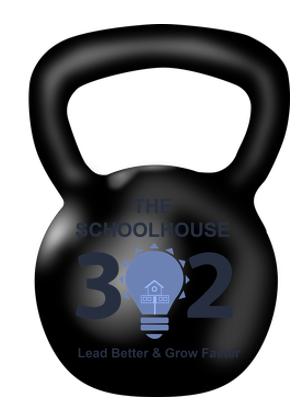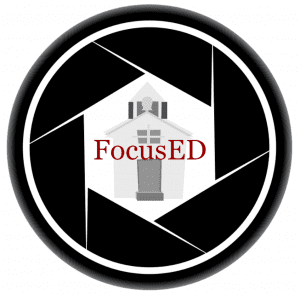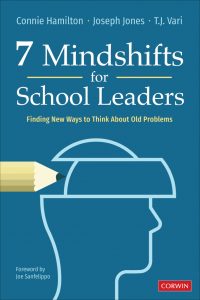
Learn How To Ignite The One Powerful Path to Reclaim Your Purpose in an Otherwise Disillusioned Environment
“I thought this would be better.” How many times have we had that thought? There’s no doubt that at times our experience does not meet our expectations, resulting in disillusionment, possibly even resulting in sadness or despair. Let us say right out of the gate that we are not psychologists, we don’t pretend to be, nor have we stayed in a Holiday Inn Express recently. But, we do work and interact with countless people every day, and we strive to understand how they tick, what influences their beliefs, and where they get new ideas.
Why? To lead better means you must become a student of human behavior. And, for a myriad of reasons, especially throughout Covid19, we find more-and-more individuals who are feeling like “things should be better.” Whether in education or the private sector, it’s not uncommon for us to experience disappointment. If you find yourself nodding your head in agreement, you’re not alone. This is one reason we broadcast our 302 Thoughts in front of a live audience–to create a space for leaders and learners to gather and rumble with difficult topics. If you want to lead better and grow faster, hopefully you’ll join us.
As we listen to others, travel around conducting school leadership training in schools and districts, we’re finding that one thing definitely stands out–to move forward we need to reclaim our primary purpose, which is to simplify the road ahead and focus on student learning and well-being. There are quite a few things that school leaders can do to improve school conditions, such as incorporating SEL sessions for staff, providing additional time to catch up on emails, lesson planning, contacting parents, and grading, and conducting listening sessions to hear how staff are feeling. All of these external efforts will help, but they are only one side of the equation and generally become temporary outlets. There also needs to be an internal, personal declaration that needs to be made for lasting assuredness and faith that things actually will get better.
To begin the process of developing a personal declaration in an effort to reclaim our purpose, we start by getting grounded. In an atmosphere of disillusionment, when we think things should be better than they are, it’s likely that we aren’t as grounded as we should be so that we can thrive in our environment and inspire others to do the same.
Getting Grounded
One misguided thought in improving our well-being, and, in turn, our school cultures, is the belief that “fixing” external conditions alone will be the answer to our problems. We know as educators that self-efficacy and collective efficacy are incredibly impactful social constructs that support student learning. However, efficacy does not stop at the classroom door and is not only for our students but also our staff. It’s something that we can develop as adults, as leaders, as people–in ourselves and others. We have to work on our internal capacity so that we can even appreciate and recognize the external factors of life and work. If we are not in a mentally resourceful space, any external attempts to improve will fall short. Efficacy is the belief that our actions can make a difference–that we have the power within us. It has nothing to do with waiting for something or someone to influence us, but rather the other way around.
This type of mindset requires flexibility and openness. And, in a state of disillusionment, these characteristics of our thinking–flexibility and openness–must be extreme in their use. We are not suggesting to ignore reality or simply be naively positive. Rather, we must embrace a belief that we can create a better situation if we work together toward that end. Happiness, as we can see from the passage below shared by Dr. Tara Well, associate professor of psychology at Barnard College of Columbia University, should not be fixed or our well-being will suffer.
“…we can develop some pretty fixed ideas on what will make us happy, and eventually train our minds to believe that we’ll only be happy if we get those things. We mistakenly believe that it’s the thing that is going to make us happy, and when we don’t get it, we’re disappointed.”

Knowing that fixed ideas regarding what we think will improve our situation can trap us; instead, it’s critical that we ground ourselves in those things that do create greater fulfillment and success. This is what we mean by getting grounded.
Getting grounded requires an unbridled effort to identify those things that are most important to our personal and professional core values. This works in life as well as it does in school leadership as you work to guide your school or district community.
To understand how to pursue and identify our ground, we take a look at the wisdom of the great Greek stoic philosopher, Epictetus. Our aim is to identify those things we can control in a world that is still seeped in uncertainty, distrust, and fear. To venture down this road of getting grounded, we offer three primary paths: 1. Look for solid ground; 2. Reclaim your ground; and 3. Thrive in your ground.

Look for Solid Ground: Introspection
Suffering arises from trying to control what is uncontrollable, or from neglecting what is within our power. ~ Epictetus
The last two years have undoubtedly knocked us off balance, and as leaders we need to find solid ground again. We cannot do that without looking inward and establishing personal and professional standards in this new world. We do that by identifying our overall purpose as a person and as a school community. And then we align our daily actions to this greater sense of self, connected and grounded.
If you are a classroom teacher, what is your purpose?
If you are a school or district administrator, what is your purpose?
No one knew what the devastation of a pandemic would bring in the long run–first graders not knowing how to walk the halls properly or how to manage their materials at a desk. We’ve heard incredible stories of students being oddly possessive of classroom supplies in the younger grades–markers and erasers–trivial things that are readily available. And we’re witness to students up-and-leaving a room without asking in the upper grades–something that they did without asking when they learned from home.
It’s fascinating to see the skills that are typically taught in schools, yet never captured in any accountability rating or report card, now starkly missing from our students in ways that require tons of attention. This, among other strange byproducts of time away from school, dramatically impacts culture, our well-being, and our abilities. Because we are challenged by such new and different problems in schools these days, we can quickly lose our sense of purpose in what we do. Purpose is such a strong indicator of groundedness that when it’s not clearly defined can bring misery.
So, as we look within ourselves, we want to approach introspection the best way that we know how, effectively working toward finding our solid ground. Instead of just thinking about ourselves and dwelling on our work or lives, we offer very succinct prompts to begin your professional introspective analysis.

Consider the following reflection prompts:
- I know my purpose at work each day.
- My purpose at work directly corresponds with my daily activities.
The answer to the first prompt may seem simple and intuitive at first, such as, “Of, course, I know my purpose, I teach. I’m a teacher. My purpose is to impart knowledge.” But, work beyond surface responses that don’t provide the specificity that truly reflects your inner definition of the purpose behind your work. You might come to something like “My purpose is to change lives” or “I plan to influence the system to be more innovative than education typically is.” The grander the statement, the better. Next, ask yourself the second prompt…if your purpose no longer matches your daily activities, you need to reclaim your ground.
Reclaim Your Ground: Empowerment
No matter what happens, it is within my power to turn it to my advantage. ~ Epictetus
Once you clearly identify your solid ground, you need to reclaim it. There is serious power in taking control of the things that you can. Despite all of the challenges in schools for teachers and leaders, there are several elements of schooling that we directly impact and that are within our control. A few that we work through in our school leadership training are as follows:
- Visiting classrooms
- Planning with high-yield instructional strategies
- Increasing student engagement
- Empowering teacher leaders
- Creating a winning culture
- Clarifying the vision of the school
- Praising others and using feedback cycles for school improvement
The next step is to identify a process goal within a particular area that we can control for the day or week. If classroom management is a challenge, then that can become a clear area of focus. Danielle Doolan, team member of The Career Contessa, which “…helps working women be more fulfilled, healthy, and successful at work” tell readers this:
“Process goals are the specific actions we take to increase our chances of achieving our outcome goals. These are the behaviors and strategies that we implement that help us set a path to achieve our desired result. Process goals are 100% controllable.”
This is of vital importance as you work to reclaim your ground. Process goals require specific actions. Those actions are under our direction and control. Determining the specifics of what you work on each day creates a greater sense of calm, connectedness, and confidence (The Three Cs of Empowerment).

Consider the following reflection prompts:
- I feel connected to my work.
- I see the results of my efforts.
Take the time to think about your responses. If you feel connected and you are seeing results, what is contributing to your success? Name it so that it can be repeated. However, if you are reading this and you find yourself disconnected and frustrated, start by identifying a couple goals that you would like to achieve this month and be sure to identify the actions you need to take to reach success.
With the clarity of our purpose in mind and process goals for taking action, we are ready to bloom.
Thrive in Your Ground: Blooming
Attach yourself to what is spiritually superior, regardless of what other people think or do. Hold to your true aspirations no matter what is going on around you. ~ Epictetus
Identifying, finding, and claiming your solid ground will provide the necessary foundation to thrive in work and life. We approach thriving and this journey of development from a different angle than your typical school leadership training. The reality is that we don’t see the effects of all of our decisions right away. Development takes time and is actually a practice of redundancy and habit formation. Thriving can actually seem uneventful at first for those who love to start and try new things. Setting and starting activities and initiatives is fun, but the real work is in the day-to-day activities that will bear the fruit of our labor.
This pursuit and drive forward flourishes in what Jim Collins describes as The Hedgehog Concept versus what he explains to be the work of the fox. The fox, “[is] scattered, diffused, and inconsistent, while the hedgehog understands that driving toward a concrete destination is what really works.” Thriving is focused and consistent; something that many of us struggle with in a time when so much has changed and so much is still uncertain. Disillusionment is born from doubt, skepticism, and suspicion about which direction we’re going and why. We get back on track when we find our inspiration and we rekindle our passion.
Consider the following questions regarding how your purpose is congruent with you developing and growing in your role–thriving for the future.

Consider the following reflection prompts:
- I’m inspired by the people with whom I work.
- I am passionate about my daily purpose.
We find inspiration in the people with whom we work, not just because they’re doing the work but because they want to get better at it. In all of our findings, readings, and trainings, we’ve realized that the most passionate people are inspired by the company they keep and the strategies they use as a team to improve. We call that a learning culture and a performance culture because it’s based on continuous improvement and a desire to do whatever we can to find success. We also recommend that leaders measure purpose and other aspects of school culture so that we can lead from a point of our strengths and work on the areas that require our attention.
Assessing School Culture with REPSS
In our book, Building A Winning Team, we developed TheSchoolHouse302 Reputable, Effective, Perception Survey for Schools (REPSS) to measure a school’s culture using the perceptions of the staff. This process can create greater levels of clarity, trust, accountability, support, growth, and innovation in schools–all indicators of highly supportive, effective, and caring cultures.
This month we are completely focused on the purpose aspect of the survey because it sets the stage and tone for the other areas. You’ll find some of the reflection questions throughout the blog post and below as well. Take a few minutes to respond to the questions/prompts to fully unveil your purpose and consider the power in knowing the aggregate answers that your school community might post if they took this survey together. What might you do with that data as someone who wants to lead better and grow faster? After all, if things aren’t as good as they should be…or could be…then we have work to do.

Reputable, Effective, Perception Survey for Schools Purpose
- I know my purpose at work each day.
- My purpose at work directly corresponds with my daily activities.
- I feel connected to my work.
- I see the results of my efforts.
- I tell a positive story about my workplace.
- The school brand communicated to the public is the same as the culture I experience as a professional.
- Our school’s core values are so clear that I know what is expected of me on a daily basis.
- I find the work I do rewarding.
- I’m inspired by the people with whom I work.
- I am passionate about my daily purpose.
As always, let us know what you think of this with a like, a follow, or a comment. Find us on Twitter, YouTube, iTunes, Facebook, & SoundCloud. And, again, if you want one simple model for leading better and growing faster per month, follow this blog by entering your email at the top right of the screen.
TheSchoolHouse302 is about getting to simple by maximizing effective research-based strategies that empower individuals to lead better and grow faster.
This blog post was brought to you by GhostBed, a family-owned business of sleep experts with 20+ years of experience. With 30K+ 5-star reviews, you can’t go wrong with GhostBed. Their mattresses are handcrafted, and they come with a 101-night-at-home-sleep trial. For a limited time, you can get 30% by using our code — SH302 — at checkout. And, even if you tell someone about GhostBed, you can earn a $100 referral reward. Go to Ghostbed.com today and use SH302 at checkout.










 7 Mindshifts for School Leaders: Finding New Ways to Think About Old Problems.
7 Mindshifts for School Leaders: Finding New Ways to Think About Old Problems. 


